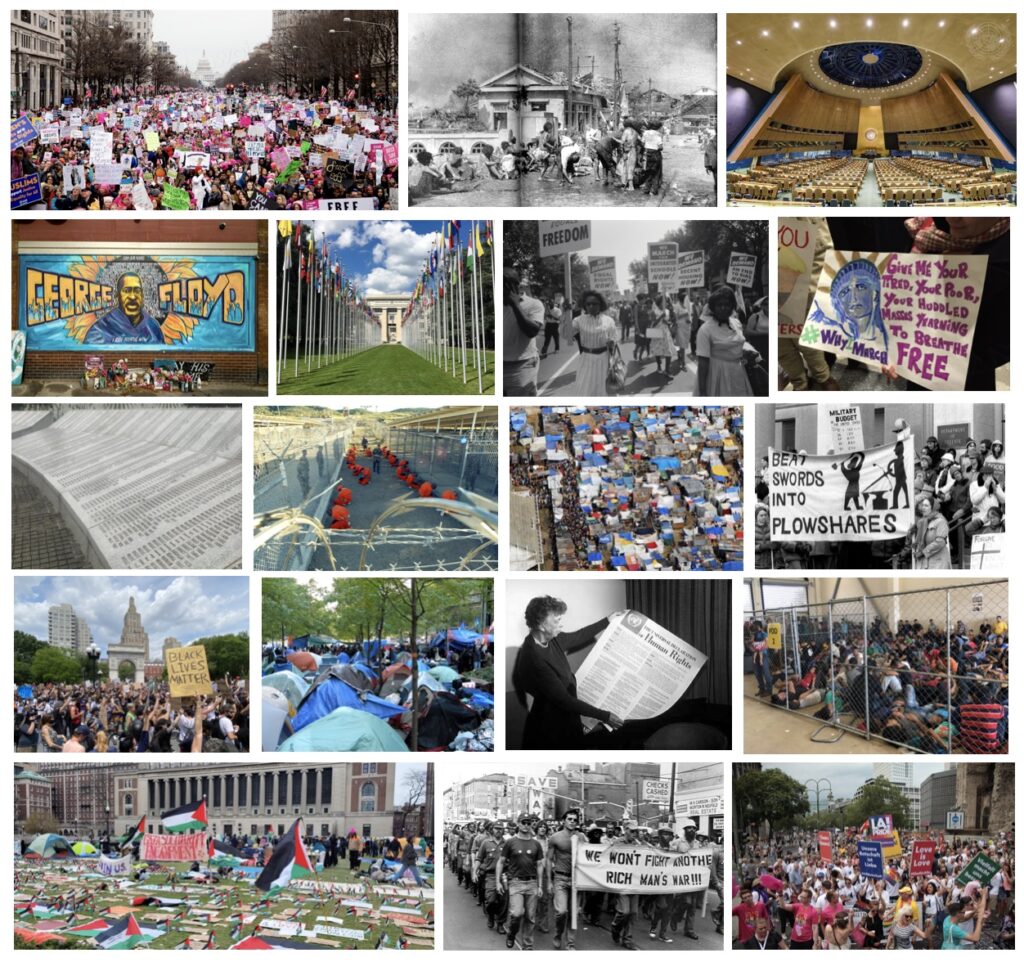
Some personal reflections on the profession of psychology and our responsibilities as we approach 100 days of authoritarian cruelty and corruption.
Psychologists here in the United States represent a range of backgrounds and areas of expertise. But I believe we all share the recognition that protecting human and civil rights is essential — not only for the well-being of individuals and communities worldwide, but also for the survival of our democracy. This is why, as a profession, we must not be silent as we witness and experience the devastation that is unfolding in so many critical arenas where psychology-informed principles, research, and practice apply. Examples include all of the following:
- The heartless offensive against the right to healthcare, including cuts to insurance coverage, misinformation about vaccines, and the defunding of medical research necessary to advance the treatment of life-altering and life-threatening illnesses
- Racism-fueled attacks on the principles and policies of diversity, equity, and inclusion, subverting progress toward greater opportunity for marginalized and disadvantaged groups
- The tyrannical undermining of our education system and of support for the free inquiry and independent scholarship that are foundational to our institutions of higher learning
- Crackdowns against students and faculty who non-violently exercise their free speech rights in an effort to defend vulnerable communities around the world
- The strangling of funding for scientific research, the gold standard for advancing knowledge as a means to alleviate suffering and improve the quality of life for millions
- The unconscionable support for and participation in the merciless and inhumane aggression against desperate civilian populations under siege
- Implementation of a cruel and brutal program of mass deportations, one that traumatizes immigrants and upends families and futures
- The pursuit of restrictions on voting rights that will deprive millions — especially women and people of color — of the opportunity to fully participate in elections that are central to the preservation of democracy itself
- The assault on the LGBTQIA+ community, especially transgender individuals by denying them appropriate medical treatment and the right to live their lives fully and authentically
- Imposition of draconian restrictions on reproductive rights, including the further curtailing of access to abortion, contraception, and relevant educational resources
- The authoritarian discrediting of judges, intimidation of law firms, non-compliance with court orders, and targeting of political adversaries, all undermining our legal system as a source of protection from government corruption and overreach
- The autocratic offensive against a free press and independent media that will deprive people of access to valuable reporting and analysis for better understanding the world
- Oppressive attacks on the welfare of workers — including instituting mass layoffs, denying them the benefits of unionization, and subjecting them to unfair labor practices — that diminish their standard of living
- The abandonment of science-based efforts to curb the destructive effects of climate change, endangering future generations and today’s most vulnerable communities
- The disruption of trust and cooperation with international allies and institutions, thereby threatening crucial treaties, diminishing access to humanitarian aid, and encouraging heightened militarism and lawlessness here and around the world
- The reinstatement of the federal death penalty, an inhumane practice with a long history of discrimination against people of color
This is not an exhaustive list, but the sources of distress I have highlighted demonstrate the breadth and depth of the current onslaught against values and priorities that we as psychologists hold dear.
As individuals, our circumstances vary widely. At times as fraught as these, those of us who are less burdened by personal or career perils must embrace the heightened responsibilities that come with our privilege. Our professional associations should do the same, recognizing that they fell woefully short during the “war on terror” when our government and its national security establishment violated the most basic standards of human decency.
The fundamentals of our profession call upon us to pursue justice and to cherish human dignity in its diverse forms. Let us therefore join in solidarity and community with all who share these concerns, committing ourselves to collective resistance, reparative action, and resolute support for those whose voices have been muffled or silenced.
April 21, 2025
Note: Roy Eidelson is the president of the Society for the Study of Peace, Conflict, and Violence (Division 48 of the American Psychological Association). More information is available here.